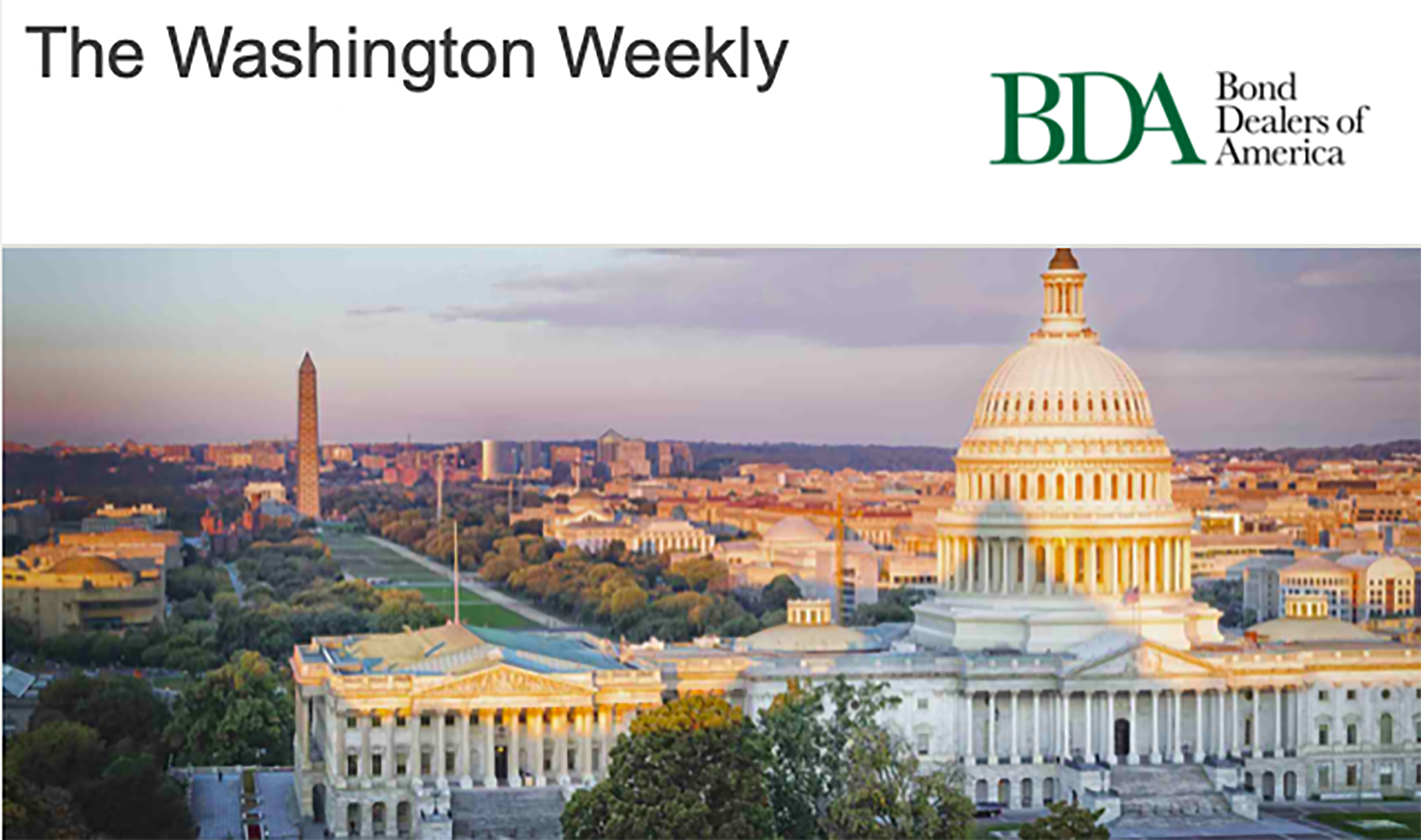
After months of legislative haggling, yesterday the Biden Administration announced an infrastructure deal has been reached with a bipartisan group of Senators setting the stage for late summer passage. While many details remain unknown, such as many details on how the plan will be paid for, the initial response on the Hill has been mixed.
The potential agreement provides nearly $600 billion in new spending, coupled with the reallocation of some COVID funding originally allotted for state and local governments, a provision that will likely cause some heartburn on Capitol Hill.
The outline also relies on the expansion of Private Activity Bonds and the creation of a new direct-pay bond to help pay for the new projects, as well as to incentivize private investment. The outline also alluded to further muni action and investment including the use of P3’s, however failed to include additional muni priorities such as the reinstatement of advance refundings and raising of the BQ debt limit-both BDA and MBFA priorities. More on this below.
**At this point the agreement remains an outline of ideas with the opportunity to expand once legislative text drafting begins. The BDA and MBFA will continue to work with our friends on the Hill and in the Administration alongside our partners in the state and local issuer community to ensure all muni priorities are included in the final product.
Many questions remain unanswered and many hurdles need to be cleared before the legislative path of this agreement is found. Congressional leaders have been hesitant to agree at this point, and legislative text has yet to be released leaving ample opportunity for further inclusion of munis. Details on pay-for also remain a big question mark.
The outline would also create an Infrastructure Financing Authority, a provision that the BDA, MBFA, and the broader municipal market advocacy coalition continue to oppose.
While the plan does outline some details such as stronger enforcement of tax collections from the wealthy, sales from the Strategic Petroleum Reserve, unspecified “public-private partnerships” and assumptions that the infrastructure investments would lead to greater economic growth, the numbers likely won’t add up to a fully offset package.
Also of note, Senate Leader Schumer worked to appease his more progressive colleagues by reiterating the need for an additional bill later in the year, likely by budget reconciliation to include more progress provisions, even going as far as to mention the raising of corporate taxes, a step that might be too far to pass.
This is the opening round in what could be extensive back in forth leading up to the August recess and beyond, and by no means will this be the last massive spending bill of this Congress.
** New BondingTime podcast featuring Tom Kozlik of HilltopSecurities discusses the continued debate over a potential federal infrastructure spending package and the possibilities of achieving bipartisanship.
The podcast can be found here.
Muni Watch:
Munis Remain a Key Infrastructure Priority As noted above, infrastructure legislation appears to be gaining steam in Washington, DC. While many details have yet to be worked out, and legislative text yet to be written, the BDA and MBFA remain focused on ensuring muni provisions play a key role in the eventual draft.
The framework includes nearly $600 billion in new spending and relies heavily on muni provisions such as the expansion of Private Activity Bonds and creates a new direct pay bond, the American Infrastructure Bond. The AIB legislation introduced by Senators Wicker (R-MS) and Bennet (D-CO) would create a new direct-pay bond with a flat 28% reimbursement rate. In the original legislation, the AIB would be exempt from sequestration, however, no details on the sequestration treatment were included in the original document.
While there was no direct mention of the reinstatement of tax-exempt advance refundings or raising the BQ debt limit, we believe that during the ongoing legislative process, there is a fair chance these will be added to the agreement. There will also likely be additional infrastructure bills later this year and into next that will provide additional opportunities as well.
The MBFA and BDA remain committed to ensuring all priorities be included in the final package once Congress and the Administration begin to write legislative text.
